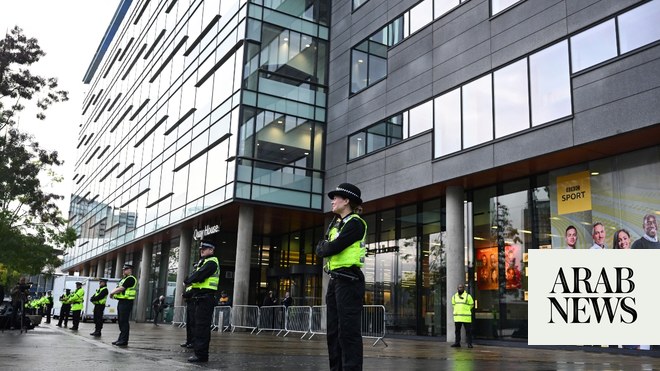Harvard journal allegedly censors article holding Israel responsible for genocide
LONDON: Editors of the renowned journal Harvard Law Review are under scrutiny for censorship following their decision not to publish an academic article claiming Israel committed genocide in Gaza after initially approving it.
Online chairs of the journal, which is run by the university’s student body, commissioned an essay from Rabea Eghbariah, a Palestinian doctoral candidate at Harvard Law School and a human rights lawyer.
After reviewing, fact-checking, and initially approving it, the essay titled “The Ongoing Nakba: Towards a Legal Framework for Palestine” was delayed and eventually rejected following an emergency meeting of editors.
The article argued that the happenings in Gaza, where Israel initiated a military operation and caused the death of over 14,000 Palestinians, aligned with the criteria of genocide according to a UN convention.
The article also advocated for an officially acknowledged offense of “nakba” (meaning “catastrophe”), the term used by Arabs to describe the expulsion of Palestinians from their homes during the establishment of Israel in 1948.
In an email to Eghbariah seen by The Intercept, which first broke the story, online chair Tascha Shahriari-Parsa called the move an “unprecedented decision.”
He wrote: “The discussion did not involve any substantive or technical aspects of your piece, rather, it revolved around concerns about editors who might oppose or be offended by the piece, as well as concerns that the piece might provoke a reaction from members of the public who might in turn harass, dox or otherwise attempt to intimidate our editors, staff and HLR leadership.”
In response, Eghabriah said that the decision amounted to “discrimination” and “outright censorship” and that it was “dangerous and alarming.”
In the emergency editors meeting, which ran for nearly six hours, over 100 editors voted anonymously on running the piece or not, with a strong majority voting against it.
Shahriari-Parsa and the other top online editor, Sabrina Ochoa, told The Intercept that they had never seen a piece face this level of scrutiny at the journal.
Other editors, who spoke to The Intercept on the condition of anonymity, echoed the sentiment.
One of them said that the fear of backlash was a critical factor in their personal decision to vote against the publication of the article. Another said that, based on research, Israeli scholars had been well represented in the magazine, but not Palestinians.
Eghbariah’s article was eventually published, earlier this week, by The Nation under the headline “The Harvard Law Review Refused to Run This Piece About Genocide in Gaza.”
The rejection was condemned by 25 editors in a statement, who said it was an unprecedented decision driven by fear.
“At a time when the Law Review was facing a public intimidation and harassment campaign, the journal’s leadership intervened to stop publication,” they wrote.
“The body of editors — none of whom are Palestinian — voted to sustain that decision. We are unaware of any other solicited piece that has been revoked by the Law Review in this way.”
In the published article, Eghbariah mentioned several scholars who contend that Israeli actions align with the legal criteria for genocide.
He added: “And yet, leading law schools and legal scholars in the United States still fashion their silence as impartiality and their denial as nuance. Is genocide really the crime of all crimes if it is committed by Western allies against non-Western people?”

Leave a Reply